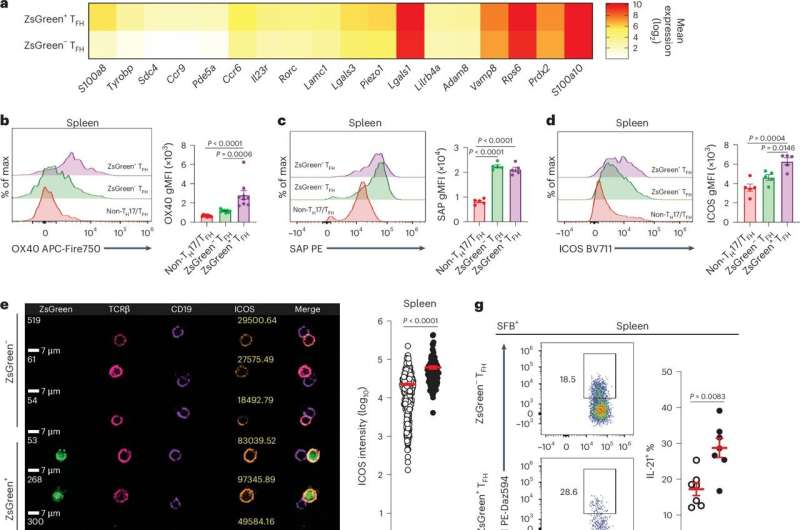Scientists first reported in 2016 that specific gut microbes known as commensal bacteria, which cause no harm and often contribute to host health, set off production and release of a gut-originated T cell that drives up body-wide autoimmune disease in mice. Since then, the team has focused on explaining this unexpected twist in the typically harmonious relationship between these microbes and the body.
The gut is where the action begins, but the overall outcome can be attributed to T cells’ “plasticity”—their flexibility to respond to a changing environment, such as in our body’s barrier, the gut.
In this case, reprogrammed T helper cells adopt characteristics of a new T helper cell type while preserving some of their original traits, making them “super powerful and potent—and if you are dealing with autoimmune disease, that’s bad news,” said senior study author Hsin-Jung Joyce Wu, professor of internal medicine, division of rheumatology and immunology, at The Ohio State University College of Medicine.

